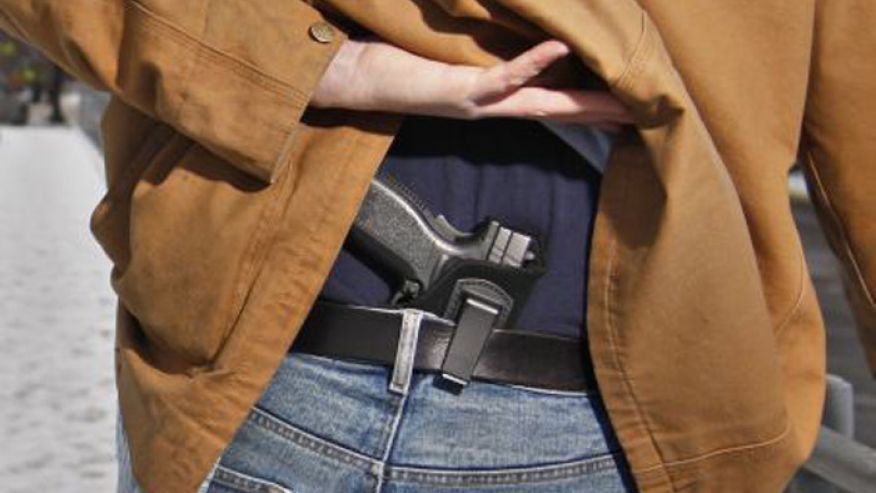A bill passed by the House would undercut state gun laws, allowing out-of-state stalkers, domestic abusers and violent criminals to carry a concealed weapon in Michigan.
The “concealed carry reciprocity” legislation would grant those with a concealed weapons permit from a state with weak gun laws to carry a pistol on the streets of Michigan, even if they are not in compliance with our state law.
Essentially, the bill overrides states’ rights and local control by requiring every state to recognize concealed carry permits from every other state. It would also allow people from the dozen states that require no permits to pack heat anywhere in the nation.
A proposal that has stood as a National Rifle Association top priority for a decade, the legislation passed on Wednesday in the Republican-controlled House by a 231-198 margin, largely along partisan lines.
Michigan is among a majority of states that would see their gun laws circumvented in a number of ways if reciprocity becomes federal law:
- 27 states ban concealed carry permits for those convicted of violent crimes.
- 28 states refuse permits for convicted stalkers
- 34 states block permits for those convicted of domestic violence.
- 34 states do not allow teens to secure permits.
- 31 states require safety training as a condition for receiving a permit.
Yet, out-of-staters could ignore all of these restrictions if Congress steps in.
Third Way, a centrist research group, points out that some states are also extraordinarily lax in their record-keeping related to who should not be permitted to carry a gun.
For example, Wyoming, with a population of 560,000, has only four records in its system referring to mentally ill people who are disqualified from concealed carry. Montana, with a population of nearly 1 million, has only three disqualifying documents based on mental health on file. And New Hampshire, population 1.3 million-plus, has just two mental health records in its system.
If the bill is passed by the Senate and signed into law by President Trump, the measure is likely to face a court challenge, as even some conservative legal experts doubt the premise behind the proposal is constitutional.
Reciprocity proponents assert that concealed-carry licenses should be treated like driver licenses. But states don’t recognize driver licenses because the federal government passed a law forcing them to do so. States entered into a voluntary compact to allow visiting drivers to use their roads. In contrast, states refuse to recognize other licenses, maintaining their own standards for licenses for teachers, attorneys and other professions.











